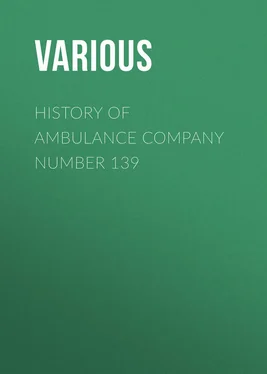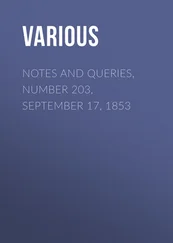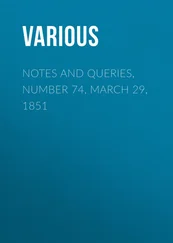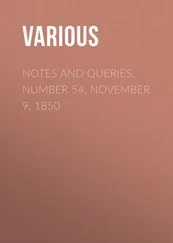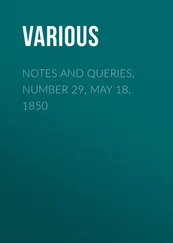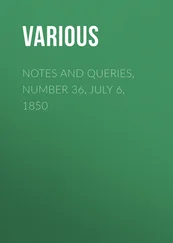Various - History of Ambulance Company Number 139
Здесь есть возможность читать онлайн «Various - History of Ambulance Company Number 139» — ознакомительный отрывок электронной книги совершенно бесплатно, а после прочтения отрывка купить полную версию. В некоторых случаях можно слушать аудио, скачать через торрент в формате fb2 и присутствует краткое содержание. Жанр: Медицина, История, foreign_edu, на английском языке. Описание произведения, (предисловие) а так же отзывы посетителей доступны на портале библиотеки ЛибКат.
- Название:History of Ambulance Company Number 139
- Автор:
- Жанр:
- Год:неизвестен
- ISBN:нет данных
- Рейтинг книги:4 / 5. Голосов: 1
-
Избранное:Добавить в избранное
- Отзывы:
-
Ваша оценка:
- 80
- 1
- 2
- 3
- 4
- 5
History of Ambulance Company Number 139: краткое содержание, описание и аннотация
Предлагаем к чтению аннотацию, описание, краткое содержание или предисловие (зависит от того, что написал сам автор книги «History of Ambulance Company Number 139»). Если вы не нашли необходимую информацию о книге — напишите в комментариях, мы постараемся отыскать её.
History of Ambulance Company Number 139 — читать онлайн ознакомительный отрывок
Ниже представлен текст книги, разбитый по страницам. Система сохранения места последней прочитанной страницы, позволяет с удобством читать онлайн бесплатно книгу «History of Ambulance Company Number 139», без необходимости каждый раз заново искать на чём Вы остановились. Поставьте закладку, и сможете в любой момент перейти на страницу, на которой закончили чтение.
Интервал:
Закладка:
A few days passed, uneventful except that we went through the usual drill necessary in case there should be a fire or an attack by submarines. Every man had his place to go in case of danger. At the gong of a bell, every man would grab his life-preserver, and hurry, supposedly in an orderly manner, to his portion of the deck. One of the fellows asked John, the cook, if he expected one little life-preserver to hold him up. Well, John didn't say anything, but that night he had a couple of extras – "I might have to use them," was the only excuse he would give.
After a few days out the ocean began to get rough, and the boat would heave from side to side, and at the same time pitch forward and backward. However, we soon got used to it, and did not mind it so much. Some time that night one of the boys who had been on deck ran in, saying "the rudder has broken" – and apparently something was broken, for the boat seemed to heave all the more, and to take a zig-zag course. Once or twice it made a complete circle, and we began to think that they had lost all control of it, but three sturdy sailors were sent up in the stern to handle it by means of large pilot wheels. Our company was quartered just beneath the officers kitchen, and during the roughest part, the plates and other dishes began to roll from their places on the shelves, breaking upon the floor. This made a very unpleasant sound, above the uproar of a thousand other noises. During the rough sea, the mess line began to thin out somewhat. Some would come into the mess hall, but at the sight of food, they would turn pale and make a hurried exit.
Soon we ran into comparatively smooth water again, and one day our boat's turn came for target practice. We drew away from the convoy, and a buoy with a small flag on was dropped overboard. The gunners took their turn shooting as the boat swung around, and once or twice they came so close that we felt sure they had made a direct hit. The buoy was knocked under the water, but the little thing soon appeared again. The boys were naturally anxious to see them handle the guns, and they crowded around as closely as possible, but after the first shot they gave them more room. One fellow was standing directly behind the gun, but upon the super-deck. He was so intent upon watching the operations that when the gun fired its concussion knocked him off his feet. He got up, took a wild look around and immediately left. Finally the big six-inch gun in the stern sank the buoy. After cruising around all day, and just as night was hovering over the sea, we again caught sight of the convoy. We were certainly glad, too, for of course we felt more comfortable with the other ships.
It was on board the ship that we first became acquainted with the censorship rules. The officers did a slashing business on our first letters, and only a few unconnected lines ever reached the folks back home.
It was on the morning of May 29 that the news flew over the boat that land was in sight. Although only 2 o'clock, day was breaking, and many went on deck to see that which we had not seen for fourteen long days. Upon reaching the deck, we could also see a number of little torpedo destroyers darting here and there – small in size but powerful little "watchdogs" of the sea. The "Mosquito Fleet" had arrived, and was tearing through the water in all directions. We were thus escorted through the danger zone, and had little fear of submarines. But we could now understand why old "Chris Columbus" felt so glad upon seeing land. As the day grew on we drew into the Irish Sea. The water was as smooth as glass, with only little ripples disturbing its peacefulness. Jelly fish of every shape and size could be seen through its clearness. Two large dirigibles, and several aeroplanes came out to greet our convoy and protect us in the dangerous waters. At one time we could see both Bonnie Scotland and Ireland, where the channel was very narrow.
About 10 o'clock that morning five long blasts from one of the ships was heard – the signal for a submarine. The little sub chasers raced around to our right and immediately began to fire upon an object. The big dirigibles also made a nose dive, and turned loose with its machine guns. Aroused by the shooting, we ran up on deck to see the action, but were ordered below to await the outcome, and if there was ever a time when we could have used an "island," it was then. However, nothing serious developed, and afterwards we were told that it was a broken life buoy which had been mistaken for a periscope.
We were moving slowly, so very slowly that one could hardly feel the throbbing of the tired engines that for twelve long days had worked untiringly. From the officers' deck we could see the green and red guide lights, welcoming our convoy of fifteen ships into the sheltered harbor of Liverpool, England.
OUR FLYING TRIP THROUGH ENGLAND
We crawled out of our bunks just as dawn was breaking upon a new world for us, and went on deck, where we saw, on a cliff, "Spratt's Dog Food" printed in large white letters on a black background. Unpoetic and unromantic indeed was this first sight of England.
Here was where the "weary waiting" began, as we waited for the first transport to unload its human cargo. Old man "bon chance" was with us for the time being, for we were the second to dock. We stood on the deck, complying with the English boys request "'ave you any coins" by tossing them all the pennies we had. The men on the port side were first ordered to fall in, and then those on the starboard side, for the purpose of finding out if any of us had fallen overboard during our journey. Finally, half walking and half sliding, down the gang-plank, we stood on what was to us real land, only it was but one of the many floating docks of England.
On the side of the main street, Y. M. C. A. signs were seen, and incidentally three live American girls, who were soon serving the "to-be-heroes" with hot coffee, buns and cookies. Although they were war buns and war cookies, without sugar, we enjoyed them to the utmost.
A large, stately policeman stood guarding the gates to the street and the docks. Some of us, wondering what was on the other side of the gate, climbed up and peered over on a large, beautifully designed square, which was crowded with women and children. But, alas, we were in a big hurry, and did not get to parade before them, or to receive the embraces and kisses which we were told awaited us. The R. T. O.'s (Railway Transportation Officers) crowded us into a "miniature train," like the ones seen in the parks in "God's Country," and we were soon on our way.
We rode across streets and through buildings just like a runaway engine might do. All the time pretty girls, dressed in overalls, waved at us from factory windows. After numerous stops, and more tunnels, we passed through the suburbs, traveling at a speed which did not seem possible from the looks of the engine.
We will never forget the beauty of the English villages, nestled snugly between green hills, or the soothing effect of the winding brooks which spread their cool waters over the well kept gardens.
Three or four times the train stopped to take on water (or perhaps at the command of the "top-cutter" in order to give the boys a chance to open another can of "bully beef"). About midnight we grew weary of sitting in our little compartments, and having cosmopolitan ideas, we proceeded to make ourselves "at home." Some were packed upon the baggage racks and managed to get a little sleep, – being used to the bunks on the boat, it was not difficult to adjust ourselves to this situation.
Sometime early in the morning we were awakened by a pounding at the door, and thinking it was a fire call, or submarine drill, one chap immediately began to feel around for his life-belt. He stuck his fist in somebody's eye, and was soon told by that unfortunate person just where he was. We fell in at the side of our "vest pocket edition of a train" and marched off, and just as the sun was about to show his face, we arrived at Camp Woodley, Romsey, England. After waiting for sometime to be assigned to tents, which resembled a miniature Billy Sunday tabernacle, we stretched our tired bodies on the soft pine boards and listened intently for the "roar of cannon." Hearing nothing but the songs of the birds, we decided that an armistice had been declared and proceeded to make up for all the "couchey" we had lost.
Читать дальшеИнтервал:
Закладка:
Похожие книги на «History of Ambulance Company Number 139»
Представляем Вашему вниманию похожие книги на «History of Ambulance Company Number 139» списком для выбора. Мы отобрали схожую по названию и смыслу литературу в надежде предоставить читателям больше вариантов отыскать новые, интересные, ещё непрочитанные произведения.
Обсуждение, отзывы о книге «History of Ambulance Company Number 139» и просто собственные мнения читателей. Оставьте ваши комментарии, напишите, что Вы думаете о произведении, его смысле или главных героях. Укажите что конкретно понравилось, а что нет, и почему Вы так считаете.
